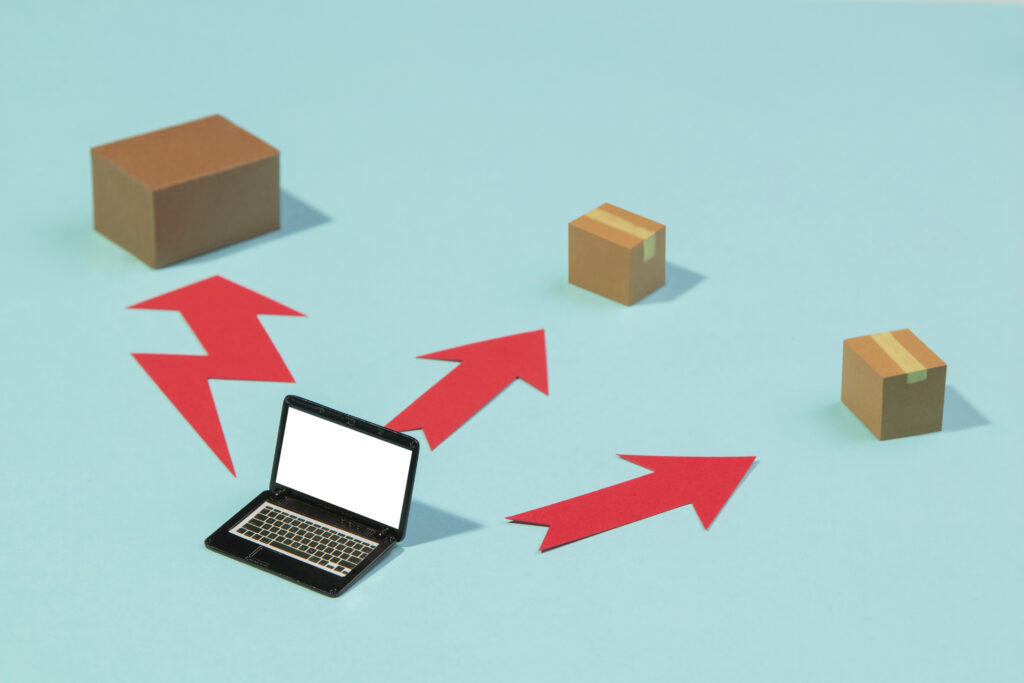With 2025 looming, delivery companies such as Amazon DSP owners and FedEx contractors are facing a multifaceted environment influenced by changing tariffs, taxation rules, and international trade patterns. These aspects greatly affect operational expenses, taxation commitments, and general profitability. Knowledge of the tariff effect on delivery organisation and Amazon DSP taxation implications is essential to ensuring financial well-being and tax adherence.
In this blog, we provide a comprehensive overview of what tariffs are, why they matter to the Amazon DSP owners, the tax landscape in 2025, and how one could prepare for tax season. Lastly, we will discuss why professional tax preparation in FedEx contractor accounting and logistics 2025, via MetroMax BPM, is a safe bet.
Understanding Tariffs And Their Importance For Amazon DSP Owners And Delivery Businesses
Tariffs are imposed to restrict imports, protect domestic industry, or affect trade balances. While tariff actions may seem distant for an Amazon DSP holder or a FedEx contractor, they do exert significantly negative pressures on the costs of doing business and the functioning of the supply chain.
Why tariffs matter for your business:
- Increased Cost Of Imported Parts And Equipment: Most delivery trucks and related equipment parts are imported. Now that there are tariffs in place, this cost rises, directly increasing maintenance and repair costs of vehicles for Amazon DSPs and FedEx contractors.
- Cost Of New Technology Upgrading: The delivery industry is moving toward EVs and other technology-driven solutions, but tariffs on EV components and GPS technology have put a financial barrier on those tech upgrades. This slows down adoption and increases CapEx.
- Increase In Prices Passed Down By Suppliers: Suppliers and subcontractors tend to increase their prices to recover cost increases imposed by tariffs, adding to the hidden costs in your day-to-day operations, and can also squeeze profit margins unless carefully managed.
- Cash Flow And Budgeting Issues: Unexpected occurrences of tariff expenses tend to interfere with your budgeting system; such incidents give rise to cash flow problems. Those who run Amazon DSPs ought to factor in such expenses to keep everything running smoothly.
How Tariffs Are Impacting The Amazon DSP Business In 2025
The tariff effect on delivery companies like Amazon DSPs is now more clearly seen in 2025. Such changes affect cost structures, supplier relationships, and even contract talks.
What does this mean for Amazon DSPs
1. Escalating Maintenance And Replacement Expenses: Cars need periodic upkeep, and tariffs on tires, batteries, and other components result in increased bills. This may tighten cash flow if not factored into operating budgets.
2. Higher Purchase And Upgrade Costs For Vehicles: Whether buying new vans or upgrading fleets to meet environmental regulations, tariffs increase purchase costs, lengthening ROI cycles.
3. Subcontractor Tariff Pricing Changes: Most subcontractors transfer tariff-related expenses into their charges, adding to operational costs. Amazon DSP owners need to renegotiate agreements or look for alternatives to control costs.
4. Operational Complexity: Tariff adjustment requires additional administrative control, monitoring elevated costs precisely for tax and accounting purposes.
Amazon DSP Tax Implications In 2025: What Delivery Businesses Need To Know
Knowledge of the Amazon DSP tax implications for 2025 is crucial in preparing proper returns and maximising deductions.
Key tax considerations for 2025:
- Depreciation Rule Changes: The IRS makes periodic updates to rules that dictate how businesses depreciate vehicles and equipment. Such changes influence how rapidly Amazon DSP owners can depreciate investments in their fleets.
- Subcontractor Payment Classification: Misclassification of subcontractors can generate tax penalties. Proper reporting of payments and handling of 1099 forms is imperative for compliance.
- Deductible Technology Investments: Software, telematics, and tracking tool expenses are deductible, but precise documentation is required to substantiate claims.
- Tariff-Related Cost Deductions: Several Amazon DSPs miss the point that additional costs incurred due to tariffs, such as customs charges and import duties, can be claimed as business expenses if properly recorded.
Logistics Tax Preparation 2025: How Amazon DSPs And FedEx Contractors Can Get Ahead This Season
Logistics tax preparation 2025 is a task that needs careful planning and thorough knowledge of tax regulations specific to the industry.
Effective preparatory tips:
- Keep Detailed Records Of Expenses: Record all operating expenses such as fuel, vehicle maintenance, and duties. Proper records help you avoid missing deductions and can assist during audits.
- Separate Tariff-Related Expenses: Isolating expenses that occur directly because of tariffs facilitates the claiming of legitimate deductions and knowing your actual cost of goods sold.
- IRS-Compliant Mileage Tracking: Proper mileage records are required to be eligible to claim auto expenses. Utilising authorised digital software minimises errors and makes reporting easier.
- Correct Classification Of Workers: Classify drivers and subcontractors properly as employees or independent contractors to prevent IRS penalties.
- Consult with Specialised Accountants: Hiring accountants who are experienced in FedEx contractor accounting and delivery business tax regulations guarantees you optimise deductions and stay in line with regulations.
Ease your tax prep with MetroMax BPM’s industry-specific offerings geared to ease logistics tax preparation in 2025. Consult today for expert services.
Tariff And Tax Deductions Often Overlooked By Delivery Businesses
Most delivery companies overlook potential deductions for tariffs and trade costs, hurting their profit margins.
Frequently forgotten deductions:
- Customs And Freight Charges: These may prove to be sizable and are deductible when properly accounted for.
- Tariff-Inflated Price Increases On Equipment: Any additional tariffs paid due to imported products should be monitored for deduction.
- Software And Compliance Expenses: Costs of systems utilised for regulatory compliance and effective fleet management are deductible but usually underappreciated.
- Consulting And Legal Costs: Expenses paid for trade consulting and tax consulting about tariffs and foreign trade can be deducted.
How Will Tariffs And Global Trade Impact Your 2025 Profit Margins?
Global trade trends and tariff policies will keep influencing the profitability of the delivery industry.
What to track:
- Trade Disputes In Progress: Cross-border disputes can lead to unexpected tariff hikes, upsetting cost projections.
- Emerging Delivery Technologies Tariffs: Growth in EVs and intelligent logistics devices could be subject to new tariffs impacting your capital investment strategy.
- Supply Chain Constraints: Delays and increased freight prices have the potential to affect delivery timelines and raise overhead.
Accounting for these aspects in your financial projections is essential to protecting your Amazon DSP or FedEx contractor margins.
Why MetroMax BPM Services Are Crucial For Amazon DSPs And FedEx Contractors In 2025
Handling FedEx contractor accounting and Amazon DSP tax implications requires expert hands.
Advantages of working with MetroMax BPM:
- Tailor-made logistics tax preparation 2025 services created exclusively for delivery companies.
- In-depth understanding of tariff impacts on accounting and tax reporting.
- Proper subcontractor payment tracking and payroll handling.
- Prompt advice to maximise tax savings and maintain IRS compliance.
- Technology-driven accounting that renders your books audit-ready.
Don’t let tax and tariff complexities impact your business. Contact MteroMax BPM Services today for specialised accounting and tax preparation customised to your delivery operations.
Final Thoughts
The tariff, tax, and trade landscape of 2025 will challenge delivery companies such as Amazon DSPs and FedEx subcontractors. Anticipating these elements, being ready for tax season with complete records, and teaming with experienced professionals such as MetroMax BPM will assist in safeguarding your profits and keeping you in compliance.














